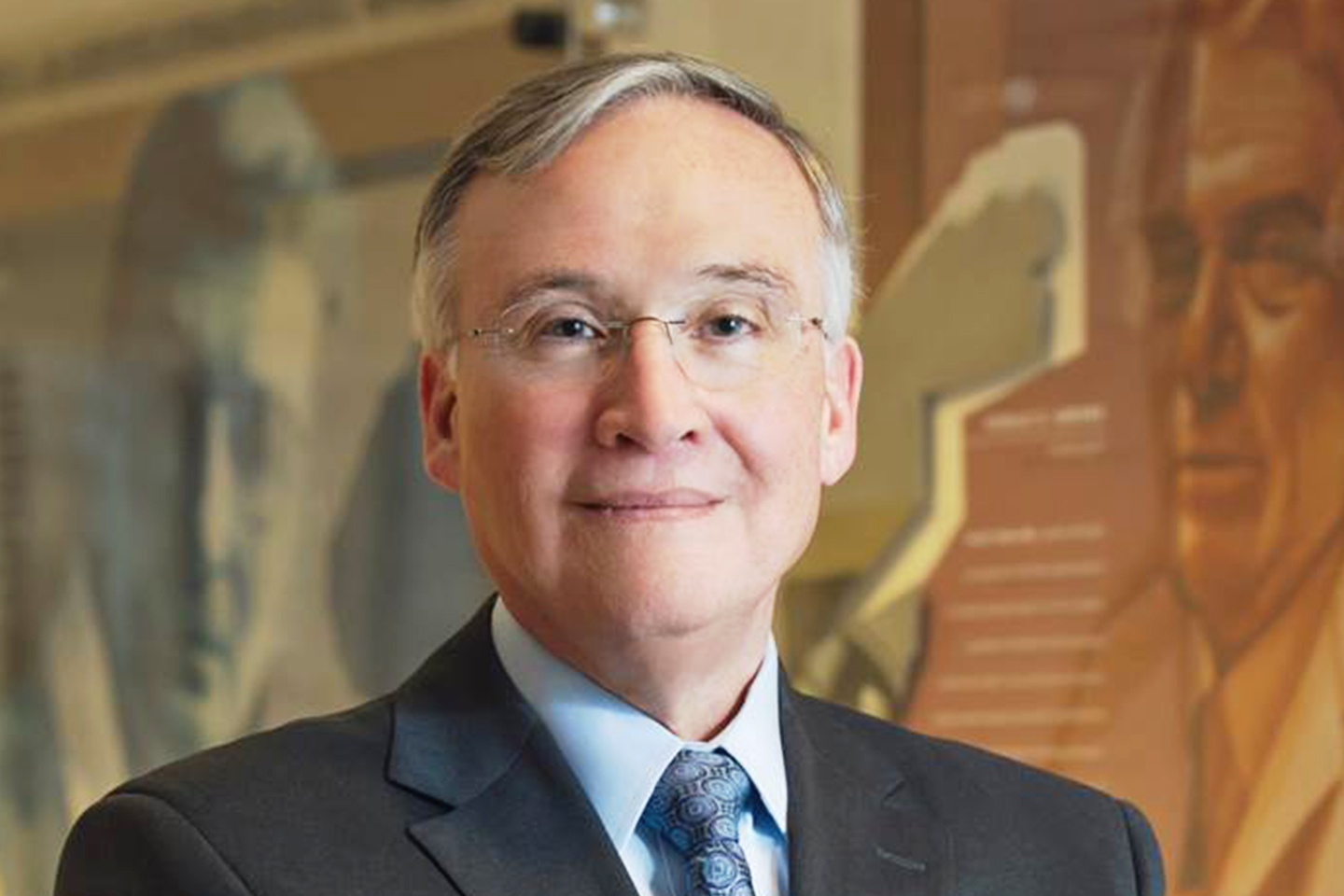
A celebrated Michigan educator and administrator known for determining futuristic trends in medical education is the featured speaker at the Oakland University William Beaumont School of Medicine’s 5th Annual William Davidson Medical Education Week May 16-20, 2016.
James O. Woolliscroft, M.D., professor of Internal Medicine and former dean at the University of Michigan Medical School, will deliver the William Davidson lecture 8-9 a.m. May 18 at the Beaumont Hospital–Royal Oak campus auditorium.
“I view Dr. Woolliscroft as ideal for the Davidson lecture because his body of work is inspiring to medical educators and he has proven himself to be highly effective and visionary throughout his career,” says Sandor H. Shoichet, M.D., FACP, Program Director, Internal Medicine Residency and Medical Director of the Outpatient Clinics at Beaumont Hospital – Royal Oak, and Associate Professor Of Medicine at OUWB. “He has done everything you could possibly do in medical education.”
Woolliscroft’s achievements and awards include the first Josiah Macy, Jr. Professor of Medical Education endowed professorship in 1996; the Lyle C. Roll Professor of Medicine endowment in 2001; the Society of General Medical Education’s Career Achievement in Medical Education Award in 2004; and the Association of American Medical Colleges’ 2014 Abraham Flexner Award for Distinguished Service to Medical Education.
Woolliscroft advocates a tailored approach to medical education, shifting away from more traditional broad-based knowledge-acquisition techniques. To best educate and prepare today’s medical students and residents, Woolliscroft advises, educators should consider how clinical medicine will look in 15-20 years, when those students will be in the most productive years of their professional careers.
The role of technology has a huge impact and the ever-accelerating insights we are gaining from genomics, epigenetics, and metabolomics, he adds. Easy electronic access to information eliminates the need for medical students to memorize, especially aspects of medicine that won’t pertain to their specific fields, he says, and pharmacologically, more personalized treatments will require doctors to specialize more.
“All of this comes together – literally billions of bits of data – and provides, in my mind, a very unique opportunity,” Woolliscroft explains. “What we need to be is far more thoughtful about it. This is where I think the world is going in the world of education. Hopefully, I’ll get people to think and reflect and I always think it’s a positive if they’re batting ideas around at lunchtime.”
Medical Education week serves OUWB faculty, staff, and students, as well as Beaumont physicians. Organizer Ann Voorheis-Sargent, associate director for OUWB’s Center of Excellence in Medical Education, says that while some medical schools may offer a special medical education day, she does not know of any that expand it to a week as OUWB does.
“This year it’s almost turning into three weeks because we have so much programming,” she says, adding that part of what makes OUWB great is its dedication to supporting faculty development and resources. “It is special. It is a commitment. It’s something very important to us and something we’re very proud to offer.”
Programming for this year’s medical education week also includes Kelley Skeff and Georgette Stratos, co-directors of the Stanford Training Facility for Clinical Educators; and Carl Christensen presenting the Impaired Physician and Student, as well as other presentations. Each Beaumont campus and OUWB will also feature posters related to medical education.
Woolliscroft’s lecture and other aspects of medical education week exist in large part because of the late William Davidson, a successful businessman and founder of Palace Sports and Entertainment and a patient and friend of Shoichet. In late 2007 Davidson initiated plans to donate $1 million to Beaumont with the express direction for Shoichet to use the money to support his work in medical education. Davidson died in 2009 at the age of 86.
Davidson’s generosity and Shoichet’s vision enabled Beaumont the opportunity to permanently endow faculty development, an area which many institutions recognize as important to an educational endeavor’s ongoing success, though one that often lacks adequate resources, says Shoichet. One of the ways the endowment accomplishes its mission is by sponsoring a nationally esteemed medical educator to be the week’s distinguished speaker in Davidson’s name.
“The lecture itself was a way to combine the commitment to faculty development and the opportunity to honor the person who made it happen,” Shoichet explains.
For more information and to register for Medical Education Week events, please visit: Oakland.edu/medicine/meded. To suggest future programming, contact Voorheis-Sargent at [email protected].

